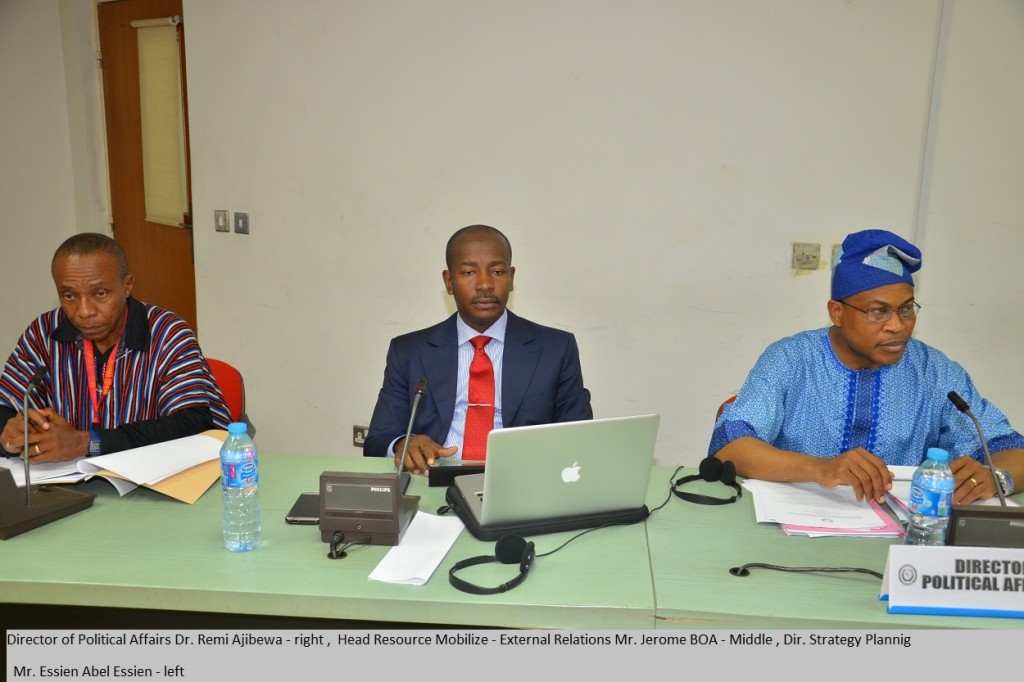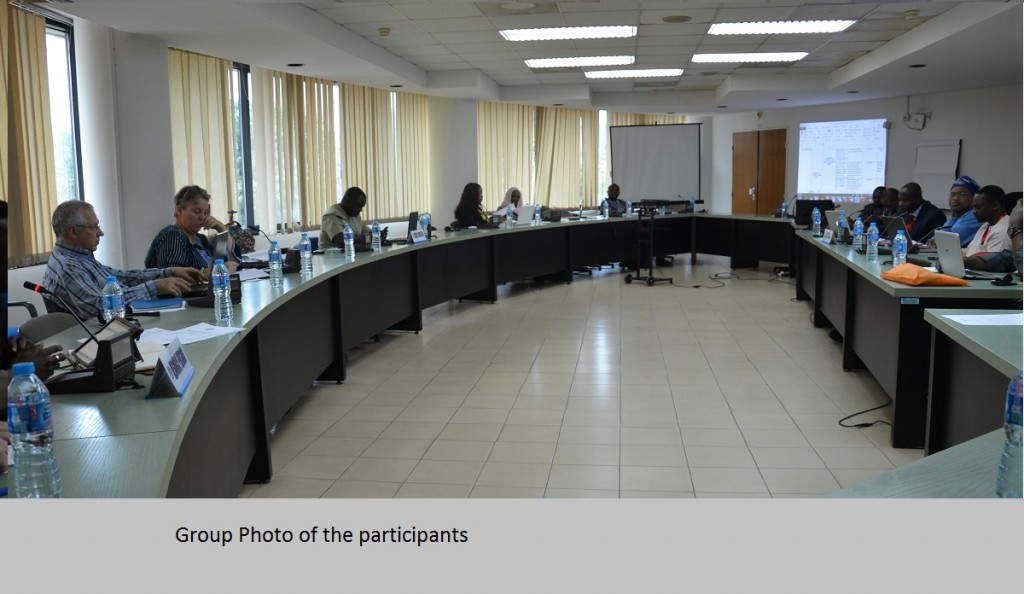Stakeholders want directorates to take full ownership of the ECOWAS conflict prevention framework
|
Stakeholders of the ECOWAS Conflict Prevention Framework (ECPF) are agreed that taking full ownership of the project is one major way of ensuring greater stability of the West African region in the days ahead. At the end of the mid-term review and internal steering committee meeting of the implementation of the ECPF in Abuja on the 14th of August 2015, the stakeholders comprising facilitators from the various Directorates of ECOWAS, their ECPF focal points and ECOWAS Development Partners, submitted that there would also be less human rights abuses in the region if the tenets of the ECPF is adhered to in the management of conflict. The ECPF has the objective of providing an avenue for operationalizing efforts aimed at conflict prevention in ECOWAS member states. Addressing participants during the meeting, the ECOWAS Director of Political Affairs Dr. Remi Ajibewa said it is an auspicious period in the year of the ECOWAS 40th anniversary to reflect on the strides of the regional organization which safeguards the rights and freedom of its people having evolved from an economic union to a group of nations that seeks more robust democracies and with a focus on improving the welfare of its citizens. “Today, we often witness cases of human right abuses, civil unrest, electoral fraud, internally displaced persons and acts of terrorism…if the ECOWAS Directorates, member states and civil society organisations are to properly utilize the ECPF, there would be fewer cases of human rights abuses, limited incidences of civil unrest, electoral fraud, the displacement of persons and the prevalence of terrorist networks could be prevented from happening. Therefore, the ECPF is a powerful instrument which should be fully utilized by ECOWAS Directorates in order for the Commission to achieve its goal of maintaining and promoting peace and stability in the sub-region” He added. On the issue of emerging threats to security in the region, focal points Identified Guinea Bissau, Nigeria, Mali and Burkina Faso as member countries of concern. Stakeholders also urged that greater clarity be brought to bear on and more attention given to the issues of supra-nationality and national constitution, statelessness, Internally Displaced Persons (IDPs). A Nigerian case in point was given where there are now said to be about two million IDPs and 250,000 refugees owing to the terrorist activities of Boko Haram In order to advance the cause of the ECPF, an Internal Steering Committee (ISC) was established in 2010 to among others ensure coordination of the process within the ECOWAS Commission. The Committee comprises senior ECOWAS officials of the Directorates that include Early Warning (which Director co-chaired the meeting), Political Affairs, Humanitarian and Social Affairs, Gender, Legal, Communication, Industry and Mines, Agriculture, Infrastructure, Environment & water Resources , Microeconomic Policy, Trade, Free Movement, Customs, External Relations, Finance, Strategic Planning, the Peace Fund as well as Monitoring and Evaluation. The meeting also reviewed the European Union (EU)-ECOWAS Peace, Security and Stability (PSS) project which mandate is backed by the 10th Europe and Development Fund (EDF). The Small Arms and Light Weapons (SALW) is implemented by the United Nations Development Programme (UNDP). There was also overviews and update on reports such as that of the meeting which held on August 2014 for the validation of the ECPF mapping exercise and its online portal. The ECPF was adopted by the ECOWAS Mediation and Security Council (MSC) in January 2008to provide a framework for operationalizing efforts geared at preventing conflicts in ECOWAS member states. Its mandate is also to mainstream conflict prevention into ECOWAS policies and programmes while seeking to strengthen regional capacities and tools for preventing violent conflicts. |





